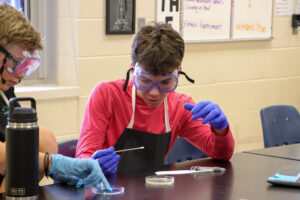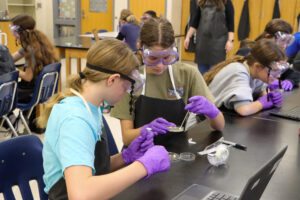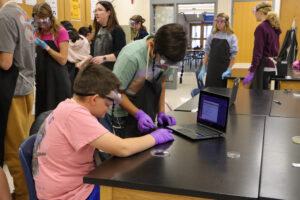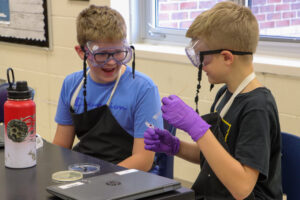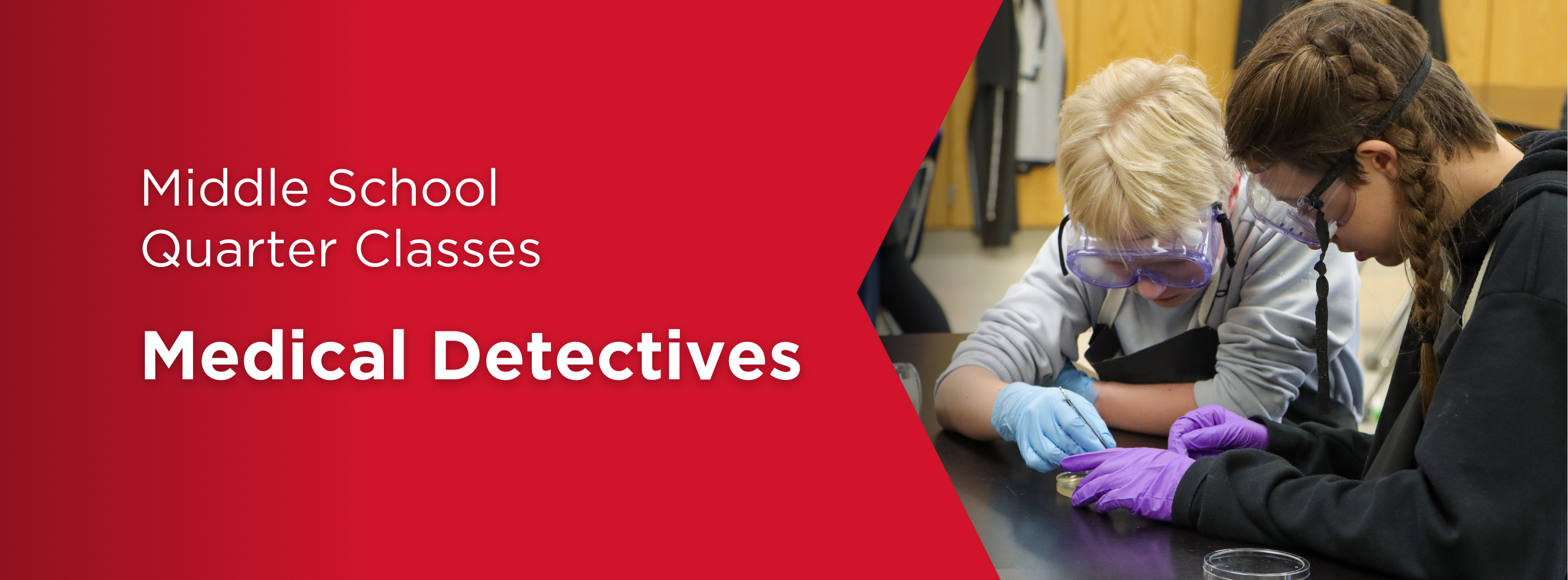
Medical Detectives Course Gives Middle Schoolers the Tools to Solve Real-Life Health Cases
Seventh-grade students at Oak Ridge and Excelsior Middle Schools are getting hands-on experience in the world of medical science through the Medical Detectives course, an engaging class where students step into the role of real-life medical detectives. By using case files, analyzing symptoms, and conducting experiments, students learn how to diagnose certain diseases, identify the source of outbreaks, and gain a better understanding of the healthcare field.
Throughout the quarter, the course introduces students to a variety of concepts related to medicine, including the basics of diagnosing illnesses, understanding vital signs, and learning about bacteria and viruses. Students also explore real-life medical scenarios, such as diagnosing brain tumors and investigating foodborne illnesses in a fictional town called Montgomery Hills.
“This class gives students an experience that they can’t get in most other classes,” said Michelle Gapstur, Medical Detectives teacher. “It helps them build problem-solving skills and gives them a taste of what it’s like to work in the medical field. They also develop confidence in themselves, learning how to present evidence and explain what they’ve learned without simply being told the answers.”
Students Grow E. coli to Learn About Antibiotics
One of the standout activities in the course is the E. coli experiment, where students grow bacteria in petri dishes and test its resistance to different antibiotics. This hands-on lab not only introduces students to essential science tools but also teaches them the importance of selecting the right treatments for different diseases.
“We’re testing which antibiotics work best against E. coli,” said student Ellie McMullin. “It’s interesting to see how not all antibiotics work the same, and it helps us understand why doctors need to choose the right antibiotics for each patient.”
Bo Denny, another student in the course, enjoys the hands-on nature of the class. “The class I’m taking right now is probably one of my favorites,” Bo said. “It’s very interactive, and you get to work with others, which makes it fun and interesting.”
A Look Ahead to the Rest of the Quarter
In addition to the E. coli experiment, students are also learning how to recognize symptoms and use diagnostic methods to diagnose certain illnesses. Students will also have the opportunity to dissect a sheep’s brain to look at the structure of the brain and locate a tumor within the brain. They will also explore an outbreak scenario where they must determine the source of a food poisoning outbreak in Montgomery Hills.
While the class is designed to give students a broad overview of the medical field, it also helps them explore whether they might be interested in pursuing a career in healthcare. The district’s high school offers a biomedical sciences program, and Medical Detectives serves as an introduction to that pathway.
“The great thing about this course is that it opens up possibilities for students to think about future careers, while also helping them develop teamwork and collaboration skills,” said Gapstur. “It gives them a chance to see if a career in the medical field is something they want to pursue.”

